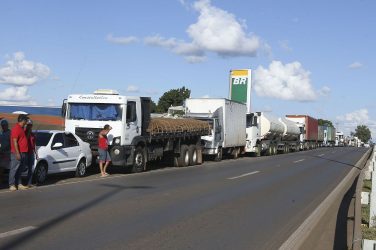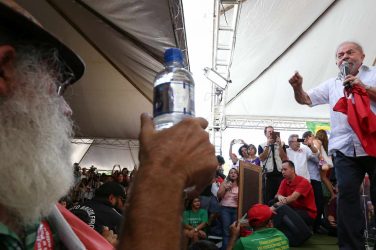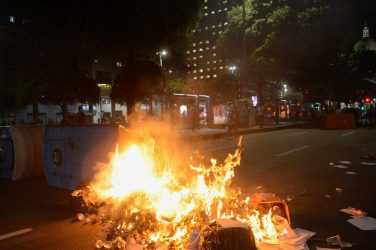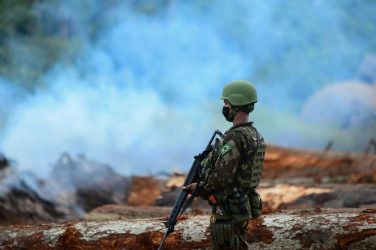Drug seizures are not infrequent in Brazil’s Amazon region. In early January alone, the Brazilian Army seized 905 kg of skunk (a powerful, high-THC form of cannabis) on the Japurá river. The drug was found on the surface of the river after a boat wreck. The traffickers ran away.
The advance of criminal organizations is one of the main concerns of authorities in the region, currently guarded by 21,000 military. In the 1950’s, one thousand were there to ensure “national integrity, sovereignty, and homeland security” along Brazil’s 9,762 kilometers of border with Venezuela, Colombia, Peru, and Bolivia.
There, the Armed Forces enforce their so-called police power within 150 km, with 24 platoons and 1,500 military from throughout the country.
Dissidents from the Revolutionary Armed Forces of Colombia (FARC) who oppose a peace agreement with the Colombian government, as well as 400 members of Peru’s Shining Path (Sendero Luminoso) guerrilla group, can be found in areas of the Amazon jungle, in a region spanning territories in eight countries known as Amazônia Legal (Official Amazon). Last year, talks between the Colombian government and the FARC stepped up, and the sides reached a deal in November.
“There is a peace and disarmament process going on, but we still have concerns about Front 1 [a section of the FARC with about 200 members], with indications that some of them might not join the peace deal. There are drugs, cocaine, skunk coming into our country from there,” said General Geraldo Antonio Miotto, military commander for the Amazon.
According to defense Minister Raul Jungmann, crime gangs behind Brazil’s recently fueled prison crisis might get weapons from FARC dissidents.
Borders
Brazil has a total 17,000 km of borders. The only South American countries that do not share borders with Brazil are Chile and Ecuador.
For those who protect these borders, the concerns go beyond drug trafficking. According to General Miotto, military troops have to deal with illegal fishing, trafficking in arms, smuggling, illegal mining, river dredging, illegal immigration, deforestation, environmental violations, illegal airstrips, illegal logging, illegal wildlife trade, and others, every day.
“The effects of all of these problems happening on the border regions will be felt in our big cities, fueled by criminal organizations,” he said. According to Gen. Miotto, rare or endangered species are smuggled to European countries or the United States for large sums. He instanced boa snakes, which are sold for US$ 1,500; true coral snakes for US$ 31,000, and blue macaws, which can get priced at as much as US$ 60,000.
During a visit to the Integrated Border Monitoring System (SisFron) Control Center in Dourados, Mato Grosso do Sul, Minister Raul Jungmann stressed the importance of the 35,000 military personnel from the Navy, Army and Air Force working on the border regions throughout the country.
Developed by the Brazilian Army, the system, whose 2017 budget has been set at US$ 141 million, will enable checks along a strip of borders with ten South American countries.
“While the border regions may be geographically remote, they have never been so close to our cities and metropolises. Only by guarding them can we reduce this crime wave. We will stop drugs, smuggling, and contraband right where they begin,” he said.
ABr












